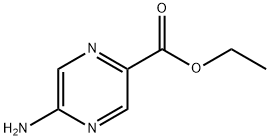At a Mumbai chai shop, two college students argue while drinking nimbu pani. One says, “Acids are only in labs!” The other laughs, “Bhai, even our food has acids!” The vendor smirks and asks—List the name of three things that have acids?
List the Name of Three Things That Have Acids?
Related Encyclopedia

- 150188-64-0
- C10H13NO3
- 195.22
- All (0)
- China (0)
- (0)

- 2971-31-5
- C10H9NO3
- 191.18
- All (0)
- China (0)
- (0)

- 6710-83-4
- C3H6N2O2
- 102.09200
- All (0)
- China (0)
- (0)
- 1348091-16-6
- C7H10O7
- 206.15000
- All (893)
- China (66)
- (893)

- 77-92-9
- C6H8O7
- 192.12
- All (893)
- China (66)
- (893)

- 7647-01-0
- ClH
- 36.46
- All (25)
- China (20)
- (25)

- 282116-88-5
- C12H15BrO3
- 287.15000
- All (0)
- China (0)
- (0)

- 892691-05-3
- C16H11NO3
- 265.26300
- All (0)
- China (0)
- (0)

- 7697-37-2
- HNO3
- 63.01
- All (12)
- China (12)
- (12)
- 13587-53-6
- DNO3
- 65.01240
- All (12)
- China (12)
- (12)
Related Products More >
-
- 7664-38-2
- CNY Request For Quotation
-
- CNY Request For Quotation
-
- CNY Request For Quotation
-
- CNY Request For Quotation
-
- CNY Request For Quotation
-
- CNY Request For Quotation
-
- CNY Request For Quotation
-
- CNY Request For Quotation




Lemons: Contain citric acid, a key component of their sour taste.
Vinegar: Primarily acetic acid, which gives vinegar its characteristic taste and smell.
Carbonated drinks: Often contain phosphoric acid, which contributes to their tartness.
Soda – It’s got carbonic acid and phosphoric acid, which give it that fizzy bite.
Lemon juice – Packed with citric acid, that’s why it tastes so sour.
Vinegar – Has acetic acid, great for cooking and cleaning.
Yogurt – Contains lactic acid, which gives it that tangy flavor.
Tomatoes – They naturally have citric and malic acid, making them a bit acidic.
Battery acid – Found in car batteries, this one’s sulfuric acid—super strong and definitely not something to mess with!
Physical: Clear, sour liquid in lemons. Mixes easily in water.
Chemical: Weak acid (pH ~2) that reacts with baking soda (NaHCO₃) to make fizz (CO₂ gas!).
Uses:
Food: Adds tang to nimbu pani, chaat, and pickles.
Cleaning: Removes stains from clothes and copper utensils.
Skincare: Balances oily skin in homemade ubtan!
2. Pet (Stomach) – Hydrochloric Acid (HCl)
Physical: Strong, colorless liquid in gastric juice.
Chemical: Super acidic (pH ~1.5–3.5)! Breaks down biryani into nutrients.
Uses:
Digestion: Helps digest proteins and kill bacteria in gut.
Industry: Used to clean steel and make PVC pipes.
Lab: Common reagent for chemical experiments.
3. Sirka (Vinegar) – Acetic Acid (CH₃COOH)
Physical: Smelly liquid (diluted to 5–8% in vinegar).
Chemical: Weak acid (pH ~2.4) that reacts with metals and bases.
Uses:
Cooking: Preserves achaar and flavors salads.
Home Hacks: Cleans windows and unclogs drains with baking soda.
Medicine: Lowers blood sugar in some Ayurvedic remedies.
Why Acids Matter?
From digesting your samosa to cleaning your bathroom, acids are desi life’s unsung heroes! They’re not just lab chemicals—they’re in your kitchen, body, and even beauty routines.
Lemon Juice: Contains citric acid, a weak organic acid responsible for its tart flavor. Citric acid is widely used in food and cleaning products.
Vinegar: Primarily composed of acetic acid, a mild organic acid formed during fermentation. It’s used for pickling, cooking, and disinfecting.
Stomach Acid: Produced by the stomach lining, this is hydrochloric acid (HCl), a strong inorganic acid essential for digesting proteins and killing pathogens.
Why Do These Substances Contain Acids?
Acids are characterized by their ability to donate hydrogen ions (H⁺) in water, leading to a sour taste, reactivity with metals, and low pH levels. In lemons, acetic acid, and stomach acid, these properties serve functional roles: preserving food, aiding digestion, or acting as preservatives.
Brief Introduction to Acids
Acids are chemicals that release H⁺ ions when dissolved in water. They typically have a pH below 7, react with metals to produce hydrogen gas, and neutralize bases (alkalis) in neutralization reactions. Natural and synthetic acids play vital roles in industries, healthcare, and daily life.
Related Questions & Answers
What happens if acids come into contact with metals?
→ Acids react with metals (e.g., iron) to produce a salt and hydrogen gas, causing corrosion.
Are all sour tastes caused by acids?
→ Yes! The sourness of foods like yogurt or tomatoes stems from acids like lactic or citric acid.